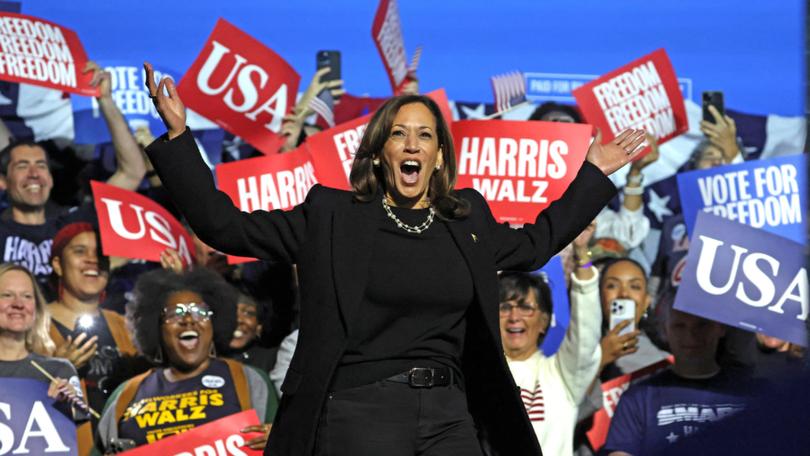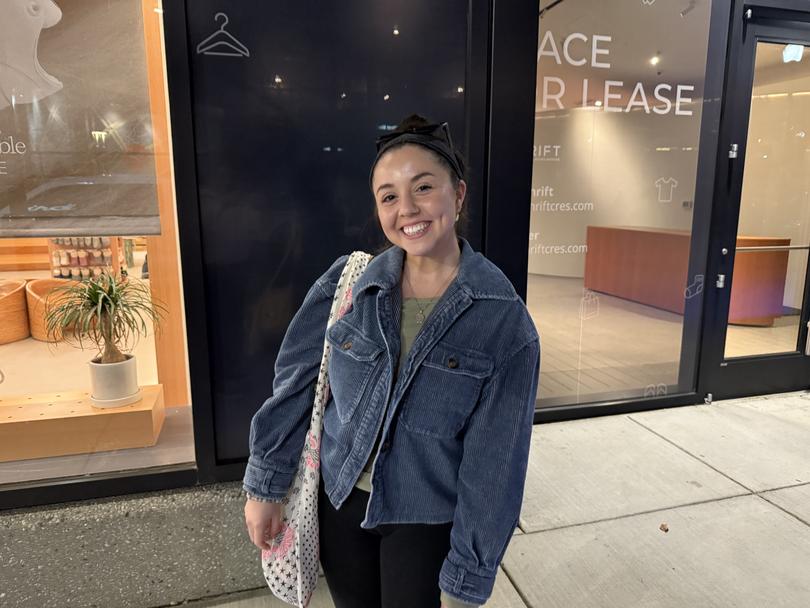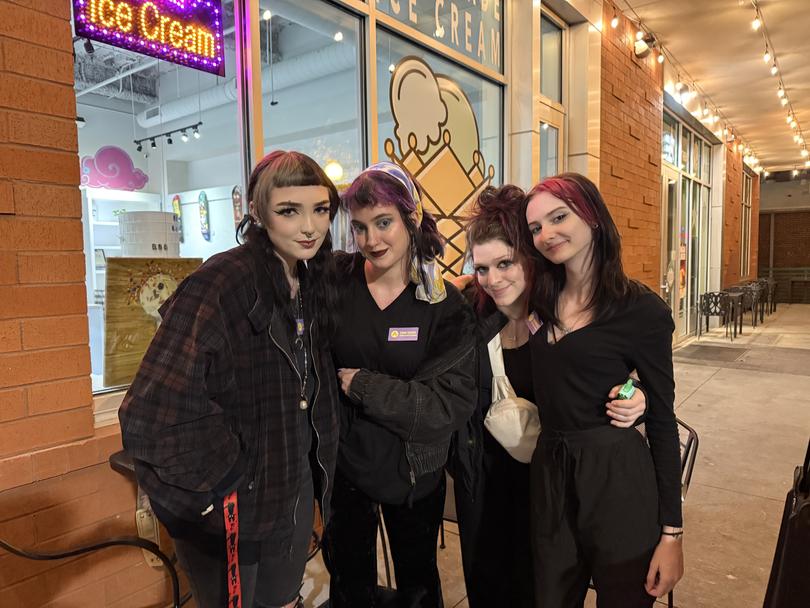US election: Kamala Harris wants the youth vote, and it could win her the election
The youth bloc is expected to hold more weight than ever when polls open in a few hours in what’s turning out to be one of the most divisive US elections in the nation’s history.

On the eve of one of the most important elections in US history, an already uncertain nation is grappling with the possibility that a nationwide movement of “young leaders” could turn the poll for Democrat candidate Kamala Harris.
One thing is certain — when the count finally begins, the election’s keen observers will start to hear a lot about voting blocs.
Sign up to The Nightly's newsletters.
Get the first look at the digital newspaper, curated daily stories and breaking headlines delivered to your inbox.
By continuing you agree to our Terms and Privacy Policy.Hyper-focused campaigning is nothing new for American elections. A shrewd candidate will usually target the white, black, Latino, Asian American, male, woman, Christian or Muslim blocs in attempts to activate a demographic or collective across all 51 States.
And the battle for the youth bloc is emerging as a crucial flashpoint for an increasingly tight poll. In 2023, when President Joe Biden was still the assumed Democrat presidential nominee, research from Tufts University found 57 per cent of Americans aged 18-29 were extremely likely to vote.
Now, the youth vote could hold even more weight, with the Harvard Kennedy School’s Institute of Politics finding in October that 80 per cent of young people plan to vote if their friends were voting.
And in a major win for Democrats, the youth bloc supports Ms Harris significantly more than Donald Trump nationwide.
According to the Harvard Kennedy School’s figures, Ms Harris leads Mr Trump among young registered voters nationwide by 20 points — 53 per cent to 33 per cent. Her margin expands even further among those young voters who consider themselves likely to vote, where she commands a 28-point advantage, 60 per cent to 32 per cent. ‘
The 18-29 age youth bloc holds 41 million Americans, which may not sound like a big portion of the 335 million US citizens eligible to vote, but it’s a big enough amount to significantly shift the result for a country with historically poor voter turnout.
Francesca, 26, from Charlotte, says she is voting for Vice-President Ms Harris on Tuesday and that most of her friends are too.

“Our generation is passionate and excited for this election,” she said. The youngster echoed the passion of many of her fellow Generation Z when it came to safeguarding their personal freedoms.
“The biggest thing, for me, is women’s rights, having control over our bodies,” she said, referring to Republican candidate Mr Trump’s problematic stance on reproductive rights.
“I will feel unsafe if Donald Trump is president.
“We are fearful of what the other side can lead us to be.”
Ms Harris has been quick to seize on that fear throughout her campaign. On Monday, the Vice-President continued her pledge to protect women’s rights in one of her final pitches to voters, as 30 celebrities, including Oprah Winfrey, Lady Gaga, Ricky Martin and Christina Aguilera lent their hefty star power to the Democrat candidate.
It continued a Harris campaign filled with celebrity endorsement from the likes of Beyonce, Jennifer Lopez and Eva Longoria and which has continually spoken about “the young leaders” at rallies in a bid to remind the youth bloc how powerful they can be in this election.
However, some young Americans see the strategy as largely unnecessary.
“It does help create awareness. But our generation has done our research or is trying to further our research,” 18-year-old Charlotte local Emma told The Nightly.
“There is a huge youth vote as we feel the things Donald Trump wants to do affect us the most.”
She hasn’t voted yet but Emma plans to wake up early on Tuesday so that she can be in line to cast her vote by 5am to make her vote count before school.
When asked why she was voting, the teen didn’t pull any punches: “We have seen what the generations before us have done.”

Her pal Lindsay, 20, who has already voted, expressed similar sentiments.
“There is a sense of fear. The line to vote (early) was 30 minutes long,” she said.
“There is a lot of fear, especially as a woman and someone who has a lot of friends who are gay or people of colour.
“We are in the south. There are a lot of extremist people who like to intimidate people in voting lines.”
Officials on Monday have been forced to issue warnings that there will be “zero-tolerance” for voter intimidation as perceived concerns on voter fraud have, in some areas, inspired vigilantes who have threatened to take things into their own hands.
For some in the youth bloc, this presidential election’s high stakes were simply too much.
Fellow Charlotte youngsters, Alyssa and Hannah, both 18, are sitting this one out.
Alyssa explained she just doesn’t know “anything” about politics and wished she had better education on it.
Although Hannah is not voting, she is “nervous” and trying to put it “out of her mind to not stress herself out” and just hopes America makes the right choice for a “good path”.
Like Alyssa, Hannah said she wouldn’t be voting because she did not know enough to make an “education decision”.
For some slightly older Charlotte voters, who have been through the process before, there’s a sense of weariness.
Breanna, 36, doesn’t think her choice matters, due to the “archaic” workings of the US electoral college system, but has voted in the “off chance”, that it does.
Similar to her younger counterparts, Breanna, voted for Ms Harris because she is fighting to protect women’s rights.

However, she conceded that Americans are so tired and so confused that many don’t know where to stand.
“Historically democracy only lasts around 200 years. I don’t know if it can continue as it is because we are tearing each other apart from the inside,” she said.
“I was a teenager when 9/11 happened and I remember this incredible unity that swept across for years after that.
“I saw that people were being neighbours to people who didn’t look like them. It took a tragedy to bring our country together.
“Now, it’s getting further apart, not drifting, sprinting in other directions.
“You don’t have to agree with someone to respect them, but that concept has completely gone.
“This is not the America I grew up in.”
